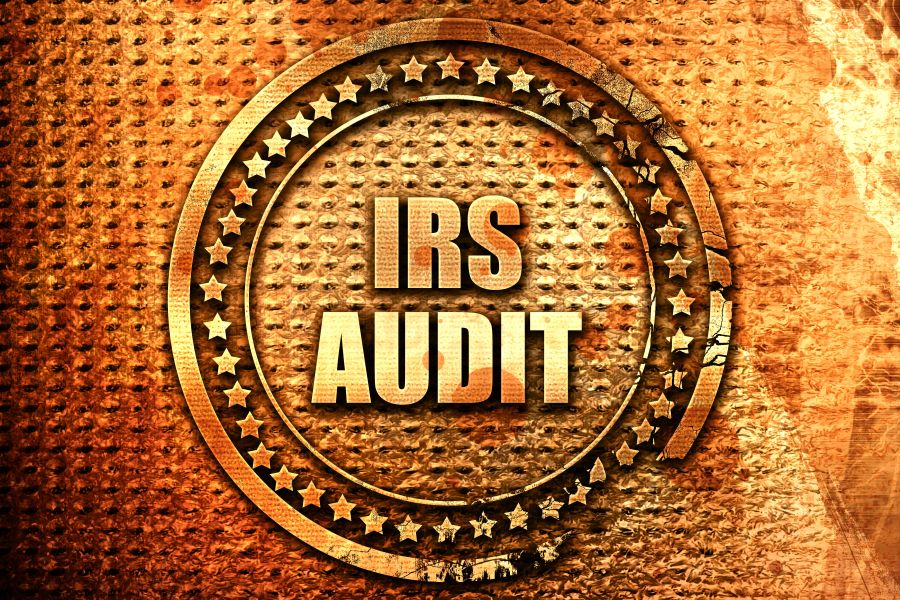Let’s say you have an unincorporated sideline activity that you consider a business. Perhaps you offer photography services, create custom artwork or sell handmade items online. Will the IRS agree that your venture is a business, not a hobby? It’s an essential question for tax purposes. If the expenses from an activity exceed the revenues, you have a net loss. You may think you can deduct that loss on your personal federal income tax return with no questions asked. Not so fast! The IRS often claims that money-losing sidelines are hobbies rather than businesses — and the federal income tax rules for hobbies aren’t in your favor. TCJA made tax rules worse Old rules: Before the TCJA rules kicked in in 2018, if an activity was deemed to...

As appearing at the IRS web page entitled "IRS Audits". An IRS audit is a review/examination of an organization's or individual's books, accounts and financial records to ensure information reported on their tax return is reported correctly according to the tax laws and to verify the reported amount of tax is correct. Why am I being selected for an audit? Selection for an audit does not always suggest there's a problem. The IRS uses several different selection methods: Random selection and computer screening - sometimes returns are selected based solely on a statistical formula. We compare your tax return against "norms" for similar returns. We develop these "norms" from audits of a statistically valid random sample of returns, as part of the National Research Program the IRS conducts....
If you have a child or grandchild planning to attend college, you’ve probably heard about qualified tuition programs, also known as §529 plans. These plans, named for the Internal Revenue Code section that provides for them, allow prepayment of higher education costs on a tax-favored basis. There are two types of programs: Prepaid plans, which allow you to buy tuition credits or certificates at present tuition rates, even though the beneficiary (child) won’t be starting college for some time; and Savings plans, which depend on the performance of the fund(s) you invest your contributions in. Earnings build up tax-free You don’t get a federal income tax deduction for §529 plan contributions, but the account earnings aren’t taxed while the funds are in the program. (Contributors are eligible for state...
The recent drop in interest rates has created a buzz in the real estate market. Potential homebuyers may now have an opportunity to attain their dreams of purchasing property. “The recent development of lower mortgage rates coupled with increasing inventory is a powerful combination that will provide the environment for sales to move higher in future months,” said National Association of Realtors Chief Economist Lawrence Yun. If you’re in the process of buying a home, or you just bought one, you may wonder if you can deduct mortgage points paid on your behalf by the seller. The answer is “yes,” subject to some significant limitations described below. Basics of points Points are upfront fees charged by a mortgage lender, expressed as a percentage of the loan principal. Points,...
With the arrival of fall, it’s an ideal time to begin implementing strategies that could reduce your tax burden for both this year and next. One of the first planning steps is to ascertain whether you’ll take the standard deduction or itemize deductions for 2024. You may not itemize because of the high 2024 standard deduction amounts ($29,200 for joint filers, $14,600 for singles and married couples filing separately, and $21,900 for heads of household). Also, many itemized deductions have been reduced or suspended under current law. If you do itemize, you can deduct medical expenses that exceed 7.5% of adjusted gross income (AGI), state and local taxes up to $10,000, charitable contributions, and mortgage interest on a restricted amount of debt, but these deductions won’t save...
Working from home has become increasingly common. The U.S. Bureau of Labor Statistics (BLS) reports that about one out of five workers conducts business from home for pay. The numbers are even higher in certain occupational groups. About one in three people in management, professional and related occupations works from home. Your status matters If you work from a home office, you probably want to know: Can I get a tax deduction for the related expenses? It depends on whether you’re employed or in business for yourself. Business owners working from home or entrepreneurs with home-based side gigs may qualify for valuable home office deductions. Conversely, employees can’t deduct home office expenses under current federal tax law. To qualify for a deduction, you must use at least part of...
Electric vehicles (EVs) have become increasingly popular. According to Kelly Blue Book estimates, the EV share of the vehicle market in the U.S. was 7.6% in 2023, up from 5.9% in 2022. To incentivize the purchase of EVs, there’s a federal tax credit of up to $7,500 for eligible vehicles. The tax break for EVs and fuel cell vehicles is called the Clean Vehicle Tax Credit. The current version of the credit was created under the Inflation Reduction Act. Here are answers to some frequently asked questions. Which vehicles qualify for the credit? To qualify for the full $7,500, there are several requirements. For example: The vehicle must be a new plug-in electric or fuel cell vehicle. It must have a battery capacity of at least seven kilowatt...
Believe it or not, there are ways to collect tax-free income and gains. Here are some of the best opportunities to put money in your pocket without current federal income tax implications: Roth IRAs offer tax-free income accumulation and withdrawals. Unlike withdrawals from traditional IRAs, qualified Roth IRA withdrawals are free from federal income tax. A qualified withdrawal is one that’s taken after you’ve reached age 59½ and had at least one Roth IRA open for over five years, or you are disabled or deceased. After your death, your heirs can take federal-income-tax-free qualified Roth IRA withdrawals, with proper planning. A large amount of profit from a home sale is tax-free. In one of the best tax-saving deals, an unmarried seller of a principal residence can exclude...
Having a high income may mean you owe two extra taxes: the 3.8% net investment income tax (NIIT) and a 0.9% additional Medicare tax on wage and self-employment income. Let’s take a look at these taxes and what they could mean for you. 1. The NIIT In addition to income tax, this tax applies on your net investment income. The NIIT only affects taxpayers with adjusted gross incomes (AGIs) exceeding $250,000 for joint filers, $200,000 for single taxpayers and heads of household, and $125,000 for married individuals filing separately. If your AGI is above the threshold that applies ($250,000, $200,000 or $125,000), the NIIT applies to the lesser of 1) your net investment income for the tax year, or 2) the excess of your AGI for the tax...
Many employees began working remotely during the pandemic and continue doing so today. Remote work has many advantages for employers and employees, and as a result, it’s here to stay in many industries. But it may also lead to some tax surprises, especially if workers cross state lines. Double taxation may occur It’s not unusual for employees to work remotely for an employer in another state. For some businesses, remote work has become a permanent arrangement that allows employees to live and work further away from a physical office. If you live in one state and work remotely for an employer in another state, familiarize yourself with the tax laws in both states and determine how they may affect you. For example, you may need to file income...











